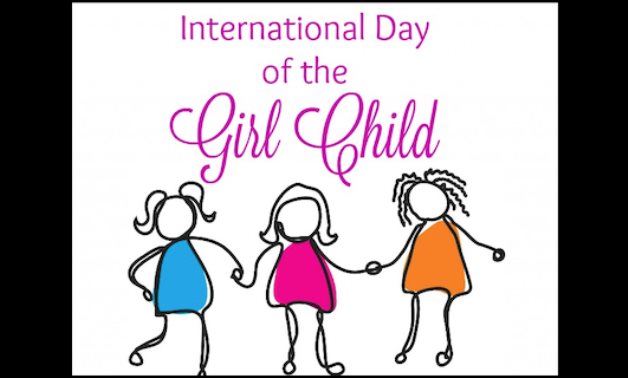Urgent need to educate, empower the girl child in Nigeria
The 2024 International Day of the Girl Child comes at a pivotal time, and the theme ‘Girls’ Vision for the Future’, is not only timely but essential. For Nigeria, a nation teeming with youthful energy and potential, it is crucial that we turn our focus to the education and empowerment of the girl child. This […]

Girl Child Day
The 2024 International Day of the Girl Child comes at a pivotal time, and the theme ‘Girls’ Vision for the Future’, is not only timely but essential. For Nigeria, a nation teeming with youthful energy and potential, it is crucial that we turn our focus to the education and empowerment of the girl child.
This is not merely a call for fairness but an investment in the country’s future. Educating and empowering girls in Nigeria is a prerequisite for sustainable development, social stability and economic prosperity.
Education is often described as the most powerful weapon for changing the world, a notion famously advocated by Nelson Mandela. In the context of Nigeria, where millions of children, particularly girls remain out of school, Mandela’s words ring particularly true. A girl who is educated is empowered to lift herself, her family and her community out of the cycle of poverty. She becomes less likely to fall victim to child marriage, violence and maternal health risks. Yet, despite this well-known fact, girls in many parts of Nigeria still face barriers to education.
In northern Nigeria, for example, cultural and religious norms often prioritise early marriage over schooling for girls. As a result, over 10.5 million children are out of school in Nigeria, with a significant percentage being girls. This not only restricts the personal growth of these young girls but also stalls national progress. A study by the World Bank revealed that every additional year of education for a girl increases her future income by 10 to 20 per cent. Imagine the transformative power this could have on Nigeria’s economy.
Additionally, educated women are more likely to ensure that their own children are educated, thus creating ripple effect across generations. If we are serious about breaking the vicious cycle of poverty and underdevelopment in Nigeria, educating the girl child is not an option but a necessity.
Empowering girls is the next step after education, and both are deeply intertwined. Education lays the groundwork, but empowerment gives girls the tools to navigate life’s challenges and seize opportunities. Empowerment, in this sense, goes beyond literacy and numeracy; it encompasses self-confidence, critical thinking, leadership skills, and financial independence.
One of the best examples of empowerment can be seen in the life of Malala Yousafzai, the Pakistani activist, who despite an attempt on her life has continued to fight for girls’ right to education globally. Malala’s courage and resilience serve as a reminder that girls have the power to change the world when they are educated and empowered.
In Nigeria, where patriarchal systems dominate many aspects of society, this empowerment is even more crucial. When girls are empowered, they are better able to challenge the status quo and contribute to societal transformation.
Moreover, empowering the girl child has far-reaching implications for societal well-being. An empowered girl grows into a woman who can actively participate in economic, political and social spheres. She is more likely to delay marriage, make informed health choices, and contribute positively to her community. By contrast, disempowered girls often become trapped in cycles of dependence, which perpetuates poverty and inequality.
Despite the overwhelming case for educating and empowering girls, numerous barriers still exist in Nigeria. These barriers include poverty, early marriage, and deeply entrenched cultural norms. However, solutions are within reach.
First, government policies need to focus on making education accessible and compulsory for all girls. This includes building more schools in rural areas, providing scholarships, and offering incentives to families to keep their daughters in school. It is equally important to challenge and change the cultural norms that devalue female education through awareness campaigns and community engagement.
Non-governmental organisations and private sector partnerships can also play a pivotal role. For instance, organisations like the United Nations International Children’s Emergency Fund (UNICEF) and the Malala Fund have been instrumental in advocating for girls’ education in Nigeria. Such efforts should be intensified to ensure that no girl is left behind.
As we observe the 2024 International Day of the Girl Child, it is vital to remember that girls hold the key to the future. Their vision for a better tomorrow will remain a distant dream if we do not invest in their education and empowerment today.
The time to act is now. Our girls deserve more than just a vision for the future – they deserve the opportunity to build it.
Philomena wrote from Utako, Abuja
